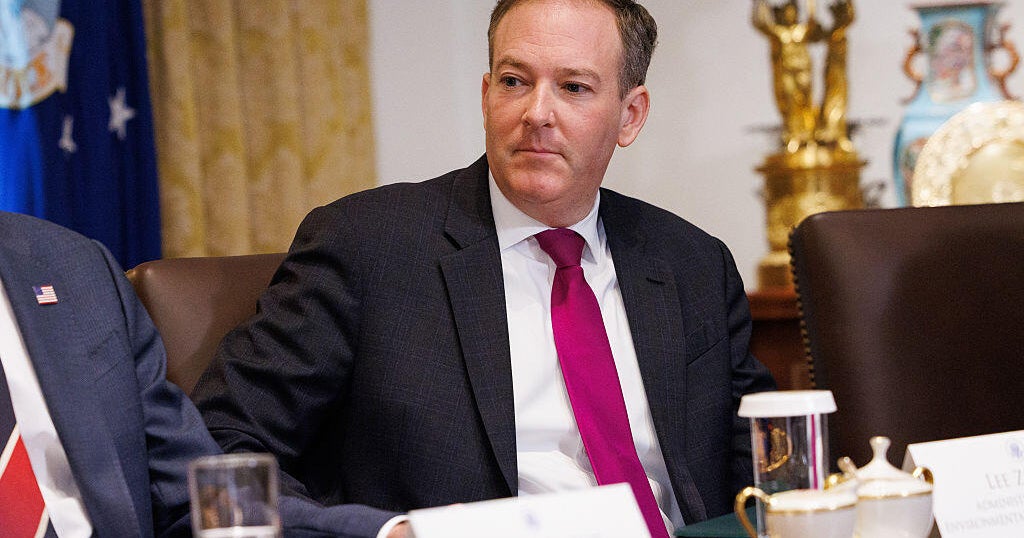News
EPA to Revoke Landmark “Endangerment Finding” Key to Regulating Greenhouse Gases

The Environmental Protection Agency (EPA) is back in the news for a decision that has everyone talking. In a surprising move, they’ve decided to revoke a significant scientific finding that dates back 16 years, labeling six greenhouse gases as threats to public health under the Clean Air Act. This decision is shaking things up, and it’s making environmentalists scratch their heads. Let’s break down what this all means and why it matters.
What’s the Endangerment Finding Anyway?
First off, let’s dive into the endangerment finding. It was initially rolled out in 2009 by then-Administrator Lisa Jackson, based on heaps of scientific research. Essentially, it declared that greenhouse gases like carbon dioxide and methane pose serious risks to public health and the environment. This scientific finding paved the way for the EPA to regulate emissions from various sources, including cars, planes, and power plants.
Fast Facts:
- Date Established: 2009
- Primary Author: Lisa Jackson
- Focus: Greenhouse gases as public health threats
When the EPA shone a spotlight on this issue, it set the stage for regulating climate pollution. Fast forward to today— Administrator Lee Zeldin announced on the “Ruthless Podcast” that the agency aims to wipe this finding off the books. He boldly claimed this deregulatory action as the largest in American history. Talk about raising eyebrows!
The Reasons Behind the Revoke
So why does Zeldin think this is a good idea? According to him, the regulations stemming from the endangerment finding have created a bunch of burdens on businesses and consumers. He went so far as to say that these regulations were “bankrupting the country.” Yep, you read that right.
Key Points from Zeldin’s Speech:
- Regulatory Restrictions: He feels regulations are too strict on transportation and other sources of emission.
- Cost Savings: Zeldin claims revoking the finding will save Americans over a trillion dollars.
However, it’s essential to throw a little cold water on that idea. The EPA’s own regulatory impact report flipped this claim on its head. It’s projected that limiting emissions from cars and trucks could generate over $2.1 trillion in net benefits over the next three decades, including substantial savings on fuel and public health improvements. Oops!
Climate Change and Its Real-World Effects
As if this situation isn’t dire enough, let’s talk about climate change and its wrath. 2024 has been recorded as the hottest year ever, with extreme weather events increasingly wreaking havoc across the nation. A staggering 246 billion-dollar disasters have hit the U.S. since 2010, leading to $1.7 trillion in damages and over 7,700 lives lost (source: NOAA). So, you might ask yourself, “Is this really the right time to roll back environmental protections?”
Not everyone is on board with this decision. Robert Howarth, an ecology professor at Cornell University, called the repeal of the endangerment finding “criminal negligence.” He argues that the science behind climate change is stronger than ever. With the growing problem of climate disruption mainly linked to our fossil fuel use, it’s not hard to see his point.
Legal vs. Environmental Perspectives
The legal landscape surrounding this finding is just as interesting. In 2007, the Supreme Court ruled in Massachusetts v. EPA that greenhouse gases could be regulated under the Clean Air Act but tasked the EPA with determining whether these gases harm public health. Talk about a game-changer!
Two years later, the endangerment finding dropped, back by extensive scientific data. But as it happens in politics, it wasn’t long before this ruling faced challenges. Most recently, the U.S. Court of Appeals upheld the finding, and the Supreme Court refused to revisit the case.
To put it bluntly, this was a big win for proponents of climate regulation. According to Christy Goldfuss from the Natural Resources Defense Council, the current administration’s decision flips the script, going against the Supreme Court’s direction for the EPA to lean on scientific findings. She suggests we could very well see them in court again.
How This Impacts Transportation and Consumers
The implications of scrapping this scientific finding could be massive, especially for the transportation sector. If the transportation industry were a country, it would rank as the fourth-largest source of greenhouse gas emissions globally. Crazy, right?
- Impact on New Vehicles: Since 2009, new passenger vehicles emit 24% less pollution than they did back in 2011, thanks to regulatory efforts.
- Current Standards: The EPA tightened tailpipe emissions in 2024, aiming to cut 7.2 billion tons of pollution by 2055 and save an estimated $13 billion annually in health benefits.
So, while Zeldin and his team are looking to loosen the reins, the EPA’s own projections suggest the opposite: stricter regulations actually help consumers save money in the long run. We’re talking about an average of $6,000 saved over the life of a new vehicle when stricter standards are met by the model year 2027.
But it doesn’t stop with vehicles. The EPA has also proposed rolling back limits on emissions for power plants and has shown a clear interest in promoting fossil fuel-based energy. So, let’s be honest— these changes can put safety and stability at risk.
What’s Next?
As the conversation around this controversial decision unfolds, it’s crucial to stay informed. Organizations are already gearing up for potential legal battles, and public awareness is rising. The eco-friendly community is rallying to protect what many see as a critical lifeline to counter climate change.
If you’re curious to learn more about the implications of climate policies, check out the extensive resources available at the EPA’s official site. Staying informed is more important than ever, especially as policies like these directly affect our environment and public health.
While the revival of regulatory measures may face an uphill battle, the outcome could shape the future of our climate policy for years to come. So keep your ear to the ground; things are just beginning to heat up!
